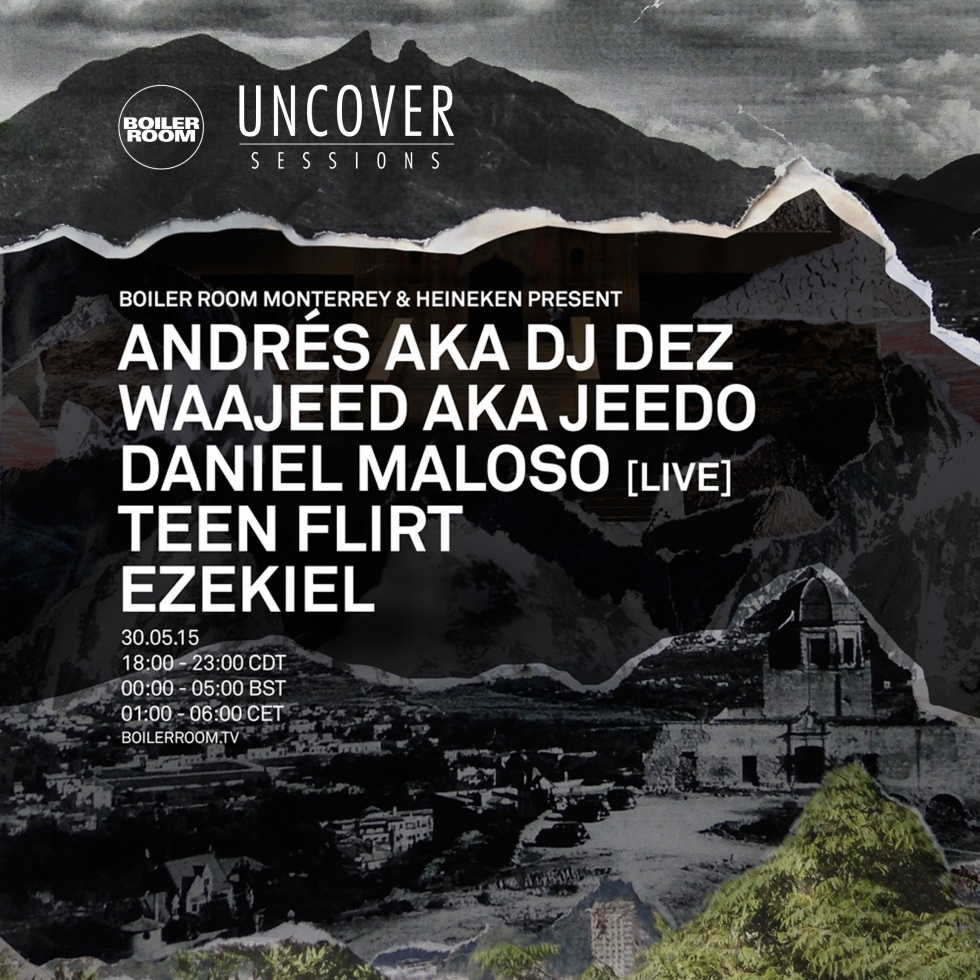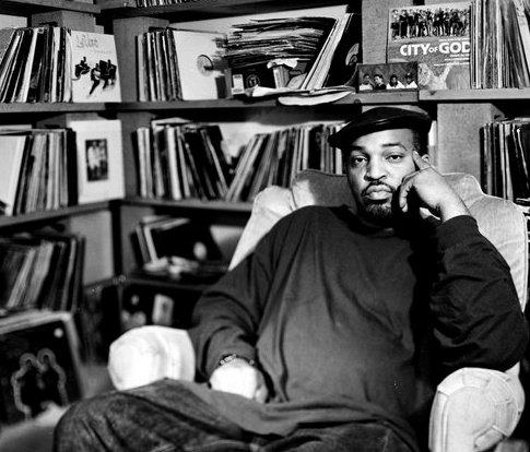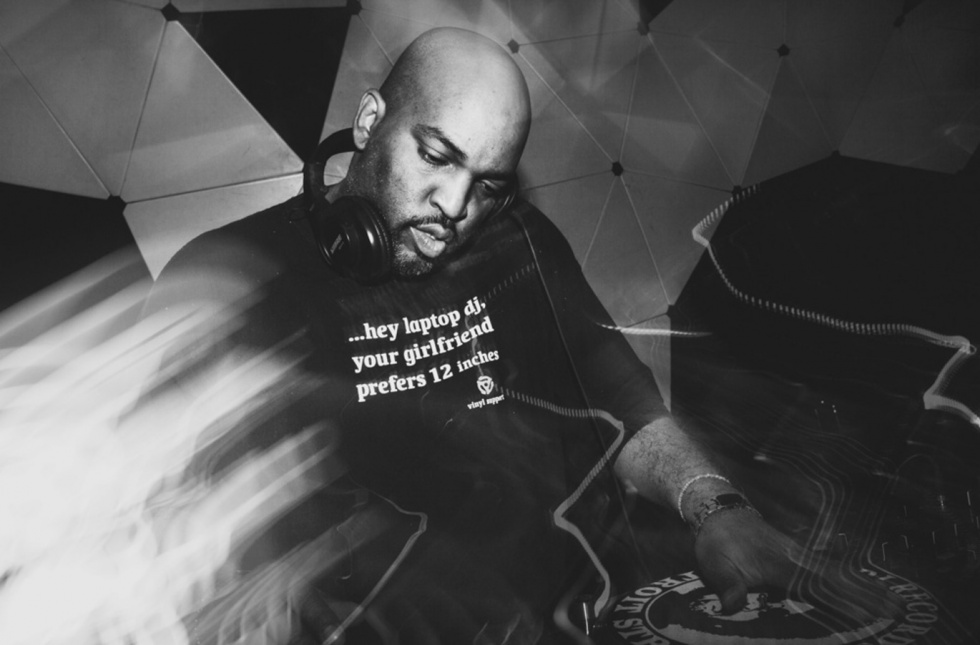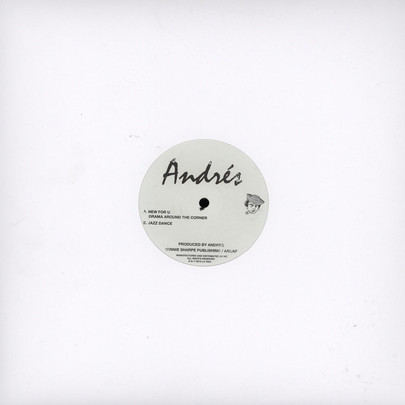There are plenty of exciting scenes in Mexico, but Monterrey’s blooming wave of producers stands out as one of the most dynamic and vibrant. It is bathed in the varied flavours of city life, and manages to combine a strong pop inclination with restless experimentalism. This city has always taken subcultures born out of the fusion of traditional genres with contemporary tendencies, and converted them into genuinely popular culture. An industrial city that follows the caprices of the market, Monterrey is a place where you have to live the creative tensions of a complex economy every day, and its creativity emerges from that.
It’s not a great stretch, given all this, to compare Monterrey to Detroit, the birthplace of techno and other exciting electronic / hip hop fusions. Under the constant tension between economic decay and pride in grassroots culture, Motor City personalities like Moodymann, Andrés, and Waajeed have continued the city’s tradition of musical innovation. Treading a fine line between underground manoeuvring and clubland fame, these artists have achieved a well-deserved international acclaim.
In the case of Cuban-American producer Humberto Hernández – Andrés – he manages to combine impressive musical achievements with a sense of still being a fresh artist. Coming from a family of Cuban musicians, Andrés has a deep history and richly layered sound that successfully connect with different generations and audiences around the world. He has amplified fine aesthetic details within his own aural memories, whether they be house, hip hop, soul or Latin rhythms, and created something unique. In his music, the origins of these forms become less important than the way each of these layers and genres are de-contextualised to create whole new musical narratives.
In this methodology, you can see parallels with Ezekiel’s new edge of understanding within bass, electronica, and hip hop or Daniel Maloso’s more aggressive sound that has been achieving global impact along with the Cómeme collective. Likewise Teen Flirt touches on similar territory, with his accented rhythms hinting at a new worldwide experimental model. The “Tell me where you are from and I’ll tell you what you play” ideal is dissipating, replaced with a generation of new sounds based out of very different, interconnected musical experiences and approaches.
We discussed this very phenomenon with Andrés to fully understand how these musical memories achieve new experiences that propagate timelessly.
BR: Tell us about your past. How did you end up producing music and DJing?
Andrés: I guess since I was a child I’ve been listening to music at home. I learned to play Latin percussion very early because my father was a musician: I performed for the first time when I was three years old. I’ve always been involved since the very beginning: my parents are Cuban and Jamaican., and I grew up listening to Cuban music and learned how to play all Latin percussion. A lot of records were played at home, at my grandmother’s place as well. There was always a record player and records everywhere. I didn’t know how to read yet, but I knew who those artists were back then. My grandmother would ask me to change the records on the players – you know, the real old school record players. Before I knew it, I was playing my own records. I still run into those records now. That was my introduction for being a musician with my father and being around records without knowing I would do that for a living later.
So, music ran through your family.
Yes, definitely. I was watching this clip that ?uestlove put out where he travelled to La Havana. He DJed there and he went record shopping and documented it. It was very emotional because that’s the journey I need to have. I haven’t been there yet but I’ve always wanted to go there. Because all I know is this element over here and I know the element over there from a historical standpoint and for following it for so many years.
In spite of that, it seems that your work almost never portrays itself as Latin. Of course your name gives it away, but in your music it isn’t that obvious.
I feel that clearly in some songs it does. There’s this one song that is not on my last album, which my father is on. Its called “About Time”, and it’s on the Green label (Mahogani Music), the Andrés II record. But there’s some other stuff on the album that I specifically made it because I wanted to pretty much go back to the essence of stuff for me. There was a song that was just percussion, maybe people thought it was an interlude, but it was me playing percussion, a bass player and keys, and just went to another track. I wanna do more live stuff like this: I do want to make a Latin album. The things that I’ve put out haven’t yet represented my calling per se, to show the fusion, the influences that exist on my music.
Well you’ve spoken before about wanting to make a journey to find your roots…
Yeah, though that’s more of a personal thing, but I’m sure that’s going to help to inspire me musically of course. As far as doing the Latin thing with my music, I look at it the same way with hip hop as far as incorporation. I’m very big on not being corny, being very authentic. I enjoy the whole spectrum of Latin music, I appreciate and enjoy it just like I enjoy my R&B and soul music. I’m like an old soul when it comes to music: I tell people all the time about a lot of Cuban musicians in the 50’s going to Mexico to become famous because the film industry was there at the time. People like Benny Moré came back to Cuba like heroes for doing these movies even though they had to leave home in order to eat and make a living. Still not many people know that.
I am a fan of that era. I have my father to thank for that, because as a young person I wouldn’t have any knowledge of any of that if it weren’t for him and the connections he had. We were abreast on the latest stuff. Cuban musicians to me are the most advanced even though they have the least. You can find a young guy who plays 20 times better than you could and he will be too poor to even own his own instruments. It would be a very special thing with his music. I draw a lot of inspiration from Caribbean music in general, reggae, a lot of funk too. Latin music has allowed me to appreciate Brazilian music as well. I actually met Ozomatli through my father. I DJed and played percussion with Ozomatli before I participated in Slum Village.
Do you think that, like those Cuban musicians, visionaries in Detroit like Moodymann are getting passed over in terms of recognition?
Yeah, I guess they share the same struggle in which they don’t get the notoriety they deserve for the work and time they put it. I guess you can say that. It’s a little different for musicians since they are able to do clinics and stuff and make money off it. I remember some of the first groups I ever seen. I remember going with my father to see Los Papines in Mexico. I remember going to see other groups doing clinics at universities and stuff. Musicians can do that. Techno musicians can do that stuff as well but a lot of those artists are more mystical like Moodymann, people that are not as visible, or that are a bit more introverted. You know what I mean? They are not so much around other people like musicians. Musicians are used to doing that since they have to eat, they gotta play, and be out there to survive. It’s a little different. They do share the same frustration I guess of not getting the proper notoriety they deserve. I agree with you on that.
How do you feel about it? You travel, you play festivals in Europe and other parts in the world, but you’re still an underground artist. Not many people know you, but you have work that make people look for you and book you around the world.
I guess it’s kinda crazy because I do feel like an underground artist but sometimes I feel otherwise. There’s still a lot of people that don’t know about me or my music. Wherever I go I try to put my foot on that motherfucker. I just try to do my thing and make sure to tear it down to make sure people like it and want me back. I try to make sure I have fun. When I have fun, everyone else has fun. You know what I mean?
You are also part of the hip hop community. Do you practice that aspect in music? What can you tell us about that experience?
It’s kind of like the nucleus of everything for my DJing. I tell people I’m a hip hop DJ but I don’t just play hip hop records. That’s my thing. I play a little bit of everything and at the same time that’s what hip hop is about. I play with a hip hop attitude but it’s not just about hip hop records. I’m definitely part of that community. A lot of people say you can definitely hear it in my music. I don’t really try to hide it. The hip hop world pretty much made me who I am but the dance music world definitely took who I am to another level. I’m definitely a product of hip hop and it is definitely in the presence. It is very strong in my music.
Do you think that makes it harder to cross over to audiences who only listen to one specific genre of music?
I enjoy being something different. I don’t think what I do is for everybody because I don’t think it would be special if it was for everybody. The same old thing you eat every day, and everyday, and everyday… that’s not really special to you, you know? When you go and really treat yourself and go get something to eat that you really want, your mouth is watering and you’re in heaven. It’s not for everybody. I can’t put my finger on it because I’m 40 years old and to be in a position where I can connect with young people and strangers is a big deal because most people think that after a certain age you don’t connect with people anymore. I don’t change anything I do in order to do that. I guess it’s a pretty good accomplishment. You know 20 year olds at festivals, clubs, and young people are like “I drove 5 hours from this location”, pull out their credit card and say “I’ll buy vinyl”. You then know you are part of the inspiration for that. That’s pretty cool.
What is your relationship with Mexico? You mentioned you’ve been there when you were young with your father.
I grew up in California so… Hehehehe. I’ve been to Tijuana plenty of times. I used to spend a lot of time in San Diego and LA. I was in D.F. with Ozomatli. We did a Rock in Español show with a Rastafarian band from Argentina. It was pretty interesting. They didn’t like it when we played more traditional stuff; they threw rocks at us and shit. It was crazy!
There has always been a good relationship between Cubans and Mexicans, historically.
Baseball, boxing, my father was into boxing as well. I always knew about that Mexicans and Cubans have a lot of passion for sports. Probably the best. The best!
Written by: Ejival
Flyer Artwork by: Montse Balmori




